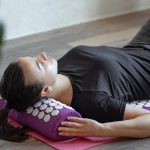The Link Between Exercise and Insomnia: A Comprehensive Exploration
Introduction
Insomnia affects a significant portion of the population, with approximately 10% to 20% experiencing difficulties in falling asleep, frequent awakenings, or early morning awakenings. While cognitive behavioral therapy (CBT) is a well-known intervention for managing insomnia, pharmacological treatments are also common, albeit with limitations due to tolerance and potential long-term complications. However, a recent study published in BMJ Open suggests an alternative approach that could mitigate the risk of insomnia: exercise.
The Study: Exercise and Insomnia Risk Reduction
The study, led by Elia Bjornsdottir from the University of Reykjavik, Iceland, analyzed data from 4,399 individuals across nine countries who participated in the European Community Respiratory Health Survey between 1998 and 2000. Participants reported their physical activity levels and sleep patterns over a ten-year period. The findings revealed a compelling association between regular exercise and a reduced risk of insomnia.
Results: The Impact of Exercise on Sleep Quality
Participants who maintained regular physical activity throughout the study period experienced significant benefits in sleep quality. They had a 42% lower likelihood of experiencing difficulties falling asleep, a 22% lower likelihood of exhibiting any insomnia symptoms, and a 40% lower likelihood of experiencing multiple insomnia symptoms. Moreover, consistent exercisers were 55% more likely to achieve the recommended 6 to 9 hours of sleep per night, 52% less likely to oversleep, and 29% less likely to under-sleep. These results underscore the profound positive impact of exercise on sleep health.
Consistency is Key: Maintaining Exercise Habits
One crucial finding of the study was the importance of consistency in exercise habits. Participants who remained active throughout the duration of the study period demonstrated the most significant improvements in sleep quality. Conversely, those who became inactive over time experienced a loss of the observed benefits, highlighting the necessity of sustained physical activity for long-term sleep improvements.
Mechanisms of Action: How Exercise Affects Sleep
The relationship between exercise and sleep quality can be attributed to various physiological mechanisms. Aerobic exercises such as cycling, running, or brisk walking have been particularly associated with improved sleep outcomes. These activities promote relaxation, reduce stress, and regulate circadian rhythms, which play a vital role in sleep-wake cycles. Additionally, exercise stimulates the release of endorphins and neurotransmitters like serotonin and norepinephrine, which contribute to mood regulation and facilitate sleep onset and maintenance.
Individual Variability and Treatment Considerations
While the benefits of regular physical activity in improving sleep quality are well-established, individual responses may vary. For many individuals with insomnia, incorporating increased physical activity into their lifestyle may be an effective component of a comprehensive treatment plan. However, it’s essential to recognize that exercise alone may not suffice for some patients, necessitating additional interventions such as cognitive behavioral therapy.
Exercise Dosage and Timing: Finding the Optimal Balance
Optimizing the effectiveness of exercise as a therapeutic intervention for insomnia requires careful consideration of dosage and timing. While moderate exercise is generally associated with improved sleep quality, high-intensity activities, particularly when performed shortly before bedtime, may have the opposite effect. Therefore, tailoring exercise regimens to individual needs and preferences is crucial for maximizing the benefits while minimizing potential drawbacks.
Conclusion
In conclusion, the relationship between exercise and sleep quality is well-supported by scientific evidence, with regular physical activity demonstrating significant potential in reducing the risk of insomnia and improving overall sleep health. However, the effectiveness of exercise as a standalone intervention may vary among individuals, and its integration into comprehensive treatment plans should be guided by individual needs and preferences. By understanding the mechanisms underlying the beneficial effects of exercise on sleep and optimizing exercise regimens accordingly, healthcare professionals can better support patients in managing insomnia and promoting overall well-being.









